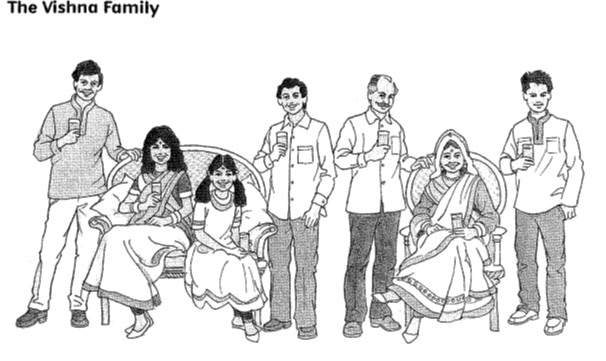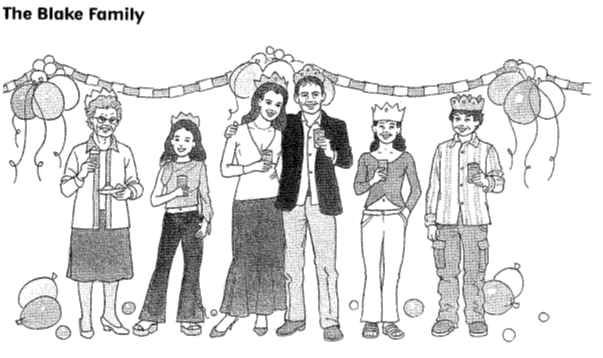практика. !!!ПРАКТИКУМ 1 часть. Практикум для курсантов, обучающихся на многоуровневой основе в 2 частях Часть 1 3е издание, переработанное
 Скачать 2.3 Mb. Скачать 2.3 Mb.
|
|
How to have a hobby in 10 easy ways. You want to do something in your spare time. So you decide to … up a hobby. You’ll probably be introduced to it by a friend who’s really … on it. You … it a try, and immediately … a taste of it. Next thing you know you’ve … the bug and you’re buying all the equipment. Gradually your hobby turns into a … . You read magazines and books about it, you can’t talk about anything else and your friends accuse you of being … . You’re so … it that you take time off work to dedicate to it. Soon you’ve become a complete … , an expert in your field. It’s not just something you do in your spare time anymore. You’re … about it. It’s a way of life. Ex. 13. Identify what hobbies people in 1 – 4 have. swap them with people / go to fairs / buy them in auctions / buy them in special shops do lengths / dive from the ten-metre board / the crawl / the breast stroke / have a sauna go on the running machine / go on the rowing machine / do weights / do an aerobics class be in a club / play against a computer / play in tournaments / study the latest moves Ex. 14. a) Work in groups. How do you think people in the UK spend their free time? b) Read the first paragraph of the article. Were you correct? c) Read the rest of the article. Guess the correct answers a) – p). d) Listen and check. Which answers do you think are surprising? The British Way of Life? A new survey on the free time habits of the British is published this week – and it shows that we still love football, shopping, going to pubs, watching TV, gardening and, of course, fish and chips! Here are some of the more surprising results from the survey. a) 53% / 83% of British families have a garden and b) 15% / 35% normally do some gardening every weekend. c) 17% / 27% of British people go swimming every week and d) 26% / 16% play football, but e) 22% / 32% watch football on TV at least once a week. 35% of adults go to the f) the theatre / a rock concert at least once a year. British people watch TV for about g) two / four hours every day – and h) 27% / 47% of men have dinner and watch TV at the same time. The British are always happy when they’re socializing. 46% of i) men / women and 23% of j) men / women go to a bar or pub every week. British people usually go on holiday once a year and 27% of these holidays are in k) Spain / France. l) 30% / 46% of adults go to McDonald’s restaurant every three months, but m) 30% / 46% go to a traditional fish and chips shop. The British spend 726 million euro on n) tea / coffee and 900 million on o) tea / coffee every year. And every British person eats p) 9 / 16 kg of chocolates and sweets every year – more than any other country in the world! a. Answer the questions. Where does the recording take place? Who are the people? What’s the name of the programme? What’s the name of this section of the programme? b. Listen again. Write each free-time activity you hear in the correct place on the table. Top ten free-time activities in Japan 1. … 2. … 3. … 4. … 5. … 6. … 7. … 8. … 9. … 10. … c. Make a list of your own top ten free-time activities, tell about them to your group mates / teacher. Ex. 16. Describe the given situation: Describe your hobby. You should say: what your hobby is and why you like it; when you like doing your hobby and how much time it takes you; how it helps you in your life. Explain why people have hobbies. V. FAMILY Ex. 1. a. Read and translate the text. My Family Family is very important for every person. Family is a special unit of society when two young people meet, fall in love and get married. Husband and wife can create their happiness together. Often they decide to have children. It isn’t surprising that every achievement, good or bad mood, happiness, it all depends on family relations. I am Steve Jones. I am a student. I am seventeen years old. My family is large. We are five in our family: a father, a mother, a sister, a brother and me. My parents are fine people. My mother’s name is Emma. She is forty-two. She’s a flight attendant. My father’s name is Ben. He’s forty-five. He is an engineer. He’s often very busy. My sister’s name is Dolly. She is twenty-three. She is married. Her husband’s name is Ted. Dolly and Ted’s son Den is my nephew. Their daughter Ann is my niece. My father is Ted’s father-in-law. My mother is Ted’s mother-in-law. Ted is my parents’ son-in-law. And I am Ted’s brother-in-law. We are close friends. My little brother’s name is John. Johnny is only six. He’s very noisy. My grandparents, my parents’ parents are not very old. My two grandfathers are about seventy. My two grandmothers are sixty-five. As for close relatives, I have an uncle on my father’s side and an aunt on my mother’s side. My aunt’s and uncle’s children are my cousins, so I have one he-cousin and one she-cousin. My cousins’ names are Mike and Jane. Unfortunately, I don’t often see them because they live far from us. And it’s a great pleasure when they come to visit us or we go to see them. Our family tradition is to celebrate birthdays and holidays together. In our family we all respect and trust each other. I love all members of my family, but the closest person for me is my dad. I can always rely on him and even share my secrets with him, because he is ready to support and help me all the time. So, my family is the best for me and we are all very happy together! b. Identify the following statements as T (true) or F (false) and correct the false ones. Prove your ideas. 1. Good family relationships are important for success and happiness. 2. Steve has one he-cousin Den and one she-cousin Ann. 3. Steve’s got grandparents both on his father’s and mother’s side. 4. Steve’s relatives live far from him and he has no opportunity to see them. 5. Steve celebrates his birthday in a family circle. c. Answer the questions. 1. What is family? 2. What depends on family relations? 3. How many people are there in Steve’s family and who are they? 4. How old are Steve’s parents? What do they do? 5. Is Steve an only child in his family? If no, how many sisters, brothers does he have? 6. How many grandparents does Steve have? Are they on his father’s or mother’s side? 7. What close relatives does Steve have? 8. Why can’t Steve often see his cousins? 9. Who is Steve the closest to in his family? 10. Are there any family traditions in Steve’s family? If yes, what are they? d. Work in pairs. Ask each other questions about families. Tell about your partner’s family to the teacher / your group mates.   b. Tell each other about the people in your family. Ex. 3. a. Read the text and complete it with the words in the box.
|
